Search Results
Showing results 21 to 40 of 120
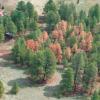
Bark Beetle Infestation Investigation: Estimation and Pheromones
Source Institutions
This activity investigates how bark beetles can threaten forests by having learners estimate the number of infected trees from a photo.
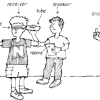
Tracking Otters
Source Institutions
This activity (on pages 38-43) has learners simulate the way scientists track and map the movement of otters in the wild using radio trackers.
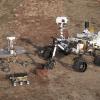
Rover Races
Source Institutions
In this activity, learners experience some of the challenges of "tele-operating" a robotic vehicle on another planet when they design and execute a series of commands to guide a human "rover" through
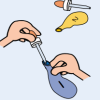
The Nose Knows!
Source Institutions
In this activity on page 9 of the PDF, learners test how flavoring extracts move through the walls of a balloon.
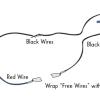
Neural Network Signals
Source Institutions
In this activity, learners create an electrical circuit and investigate how some dissolved substances conduct electricity.
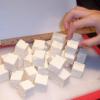
Exploring at the Nanoscale
Source Institutions
This lesson focuses on how nanotechnology has impacted our society and how engineers have learned to explore the world at the nanoscale.
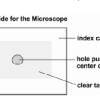
Making Regolith
Source Institutions
This lesson will helps learners answer the question: How does the bombardment of micrometeoroids make regolith on the moon?
No bones about it!
Source Institutions
This is an activity (located on page 3 of the PDF) about the mixture of materials in bone and how they affect its strength.
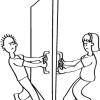
Human Interface Design: The Chocolate Factory
Source Institutions
In this activity about human interface design issues, learners help the Oompa-Loompas of a great chocolate factory solve different problems.
Hazardous Chemicals in Your Neighborhood
Source Institutions
In this environmental science lesson, learners will examine hazardous chemicals and their effects on human health and the environment.

The Carbon Cycle: How It Works
Source Institutions
In this game, learners walk through an imaginary Carbon Cycle and explore the ways in which carbon is stored in reservoirs and the processes that transport the carbon atom from one location to another

Design a Park
Source Institutions
In this activity, learners are invited to imagine the park of their dreams!

OBIS Oil Spill
Source Institutions
In this outdoor activity, learners simulate an oil spill using popcorn (both oil and popcorn float on water), and estimate the spill's impact on the environment.
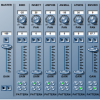
Sound Mixer: A Multi-track Mixer of Animal Sounds
Source Institutions
This is a virtual representation of a sound mixer containing pre-looped sounds of animal, insect, and environmental noises.

Urine the Know
Source Institutions
In this activity on page 5 of the PDF, learners compare water with artificial urine to see how urinalysis works. Learners use urinalysis test strips to test for glucose and protein in the fake urine.
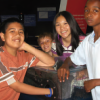
Size and Scale: Probing and Predicting
Source Institutions
In this quick activity about predicting (located on page 2 of the PDF under Where's Nano?

Simulation of Laparoscopic Surgery Lab
Source Institutions
This simulation of laparoscopic surgery enables learners to practice and to learn this modern surgical technique.
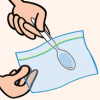
Glitter Slime
Source Institutions
In this activity on page 8 of the PDF, learners make a slimy substance very similar to mucus, and sprinkle it with glitter to imitate the way that allergens are trapped.

Wind Tunnel
Source Institutions
Scientists use enormous wind tunnels to test the design of planes, helicopters, even the Space Shuttle.
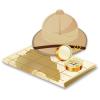
Map That Habitat
Source Institutions
Historically, sea floor mapping (bathymetry) was done by soundings.
